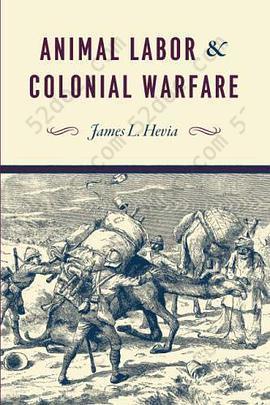注重体验与质量的电子书资源下载网站
分类于: 计算机基础 人工智能
简介

Animal Labor and Colonial Warfare 豆 0.0分
资源最后更新于 2020-09-11 15:09:15
作者:James L. Hevia
出版社:University of Chicago Press
出版日期:2018-01
ISBN:9780226562285
文件格式: pdf
标签: 全球史 科学史 殖民 环境史 历史 何伟亚 英文原版 英帝国史
简介· · · · · ·
Until well into the twentieth century, pack animals were the primary mode of transport for supplying armies in the field. The British Indian Army was no exception. In the late nineteenth century, for example, it forcibly pressed into service thousands of camels of the Indus River basin to move supplies into and out of contested areas—a system that wreaked havoc on the delicatel...
目录
Introduction
1 “Slayer of Camels”: The Second Afghan War and Pack Animal “Wastage”
2 The Browsing Camel and the Edible “Wasteland”: The North-West Frontier of British India and the Punjab Environment
3 Jackasses for India: Transport Reform and the Global Traffic in Mules
4 Veterinary Science and the Partial Rehabilitation of the Camel
5 Frontier Warfare and the Persistence of Impressment
6 Indian Army Reform and the Creation of a Permanent Transport Establishment
7 Animal Management, Canal Colonization, and the Ecological Transformation of the Punjab
8 Surra and the Emergence of Tropical Veterinary Medicine in Colonial India
9 The Great War and Its Aftermath
10 Colonial Legacies: The State, Water, Surra, and Camels
1 “Slayer of Camels”: The Second Afghan War and Pack Animal “Wastage”
2 The Browsing Camel and the Edible “Wasteland”: The North-West Frontier of British India and the Punjab Environment
3 Jackasses for India: Transport Reform and the Global Traffic in Mules
4 Veterinary Science and the Partial Rehabilitation of the Camel
5 Frontier Warfare and the Persistence of Impressment
6 Indian Army Reform and the Creation of a Permanent Transport Establishment
7 Animal Management, Canal Colonization, and the Ecological Transformation of the Punjab
8 Surra and the Emergence of Tropical Veterinary Medicine in Colonial India
9 The Great War and Its Aftermath
10 Colonial Legacies: The State, Water, Surra, and Camels







